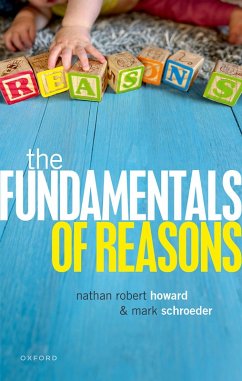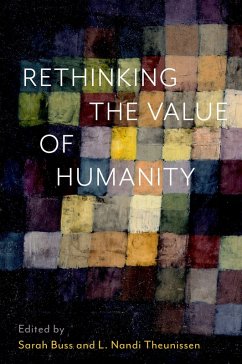
Extravagance and Misery (eBook, PDF)
The Emotional Regime of Market Societies
Versandkostenfrei!
Sofort per Download lieferbar
59,95 €
inkl. MwSt.
Weitere Ausgaben:

PAYBACK Punkte
30 °P sammeln!
In Extravagance and Misery: The Emotional Regime of Market Societies, Alan Thomas, Alfred Archer, and Bart Engelen investigate the extensive and growing economic inequalities that characterize the affluent market societies of the West. Drawing on insights from political philosophy and the new science of happiness, they show the damaging impact that existing inequalities have on our well-being, and offer an explanation for what went wrong in our highly unequal and frequently unhappy societies. Combining the approaches of philosophy and political economy, the authors expose the economic, social ...
In Extravagance and Misery: The Emotional Regime of Market Societies, Alan Thomas, Alfred Archer, and Bart Engelen investigate the extensive and growing economic inequalities that characterize the affluent market societies of the West. Drawing on insights from political philosophy and the new science of happiness, they show the damaging impact that existing inequalities have on our well-being, and offer an explanation for what went wrong in our highly unequal and frequently unhappy societies. Combining the approaches of philosophy and political economy, the authors expose the economic, social and political mechanisms that create and perpetuate economic inequalities. They employ research from the new science of happiness to assess the impact of those mechanisms on the well-being of the poor, the middle class and the rich. They scrutinize the role of key emotions, such as shame (amongst the poor), envy and admiration (towards and for the rich) as well as discussing which emotional narratives serve to justify and entrench excessive inequalities in income and wealth. The result is an explanation of the emotional regime that characterizes our capitalist societies and that perpetuates the unfair gap between the extravagance of the rich and the misery of the poor. Extravagance and Misery concludes with a proposal of how to re-shape this emotional regime in the interests of justice and solidarity.
Dieser Download kann aus rechtlichen Gründen nur mit Rechnungsadresse in A, B, BG, CY, CZ, D, DK, EW, E, FIN, F, GR, HR, H, IRL, I, LT, L, LR, M, NL, PL, P, R, S, SLO, SK ausgeliefert werden.













